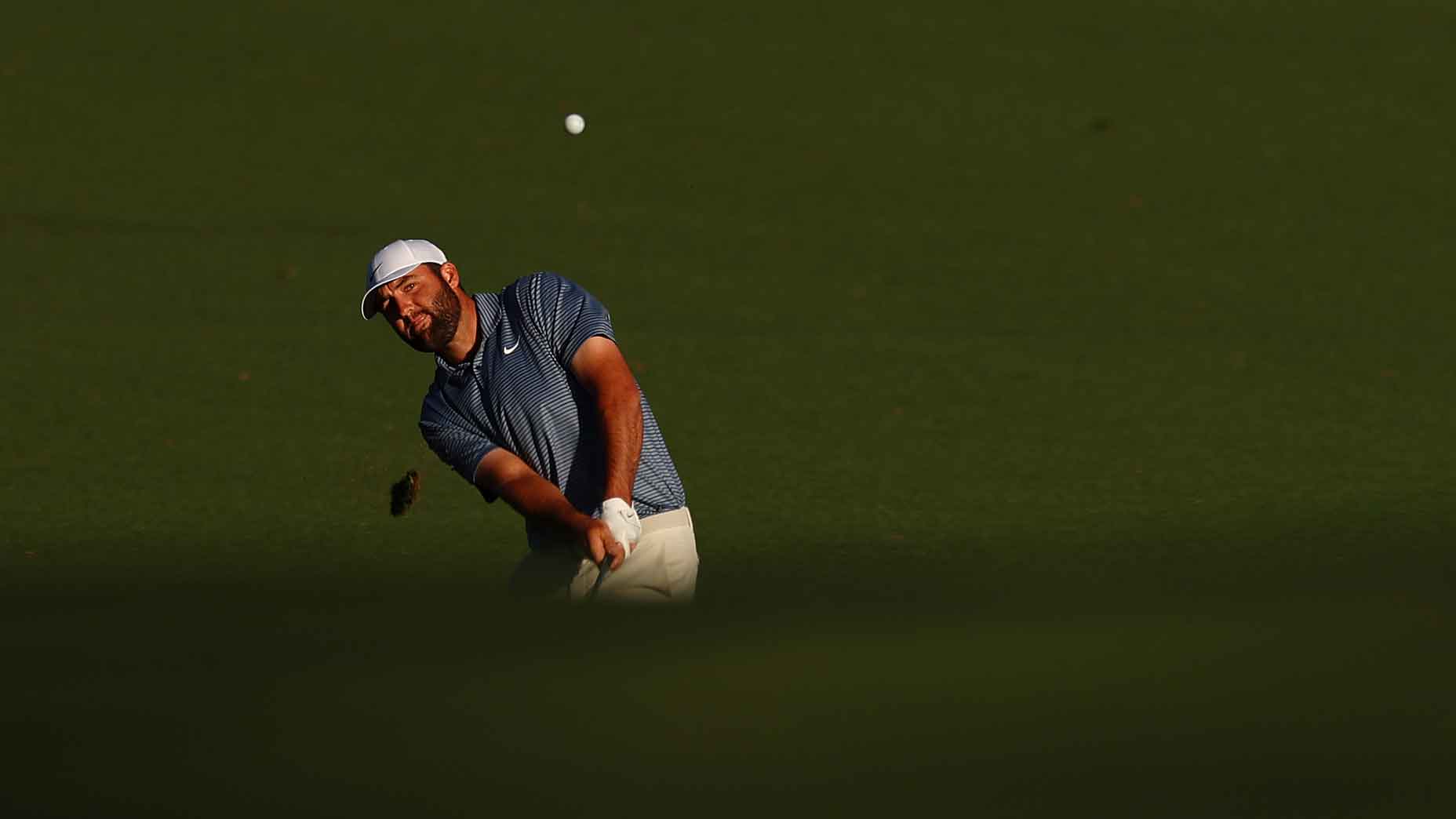Another tournament, another incredible performance thus far from the world’s top-ranked player, Scottie Scheffler.
As Scheffler enters Round 3 of the Masters tied atop the leaderboard at 6-under, there have been a few key factors that have helped him get there — but none is bigger than his short game.
According to DataGolf, the 27-year-old Texan is gaining strokes (+0.33) on the field in putting (an area that has been Scheffler’s kryptonite recently), ranks No. 2 in strokes gained: around the green (+2.46), and leads the field in strokes gained: tee to green. Put it all together, and he isn’t giving an inch to any of his competitors at Augusta.
So what makes Scheffler’s short game so dominant? I asked PGA Golf Professional Brendon R. Elliott to break things down and provide three lessons amateurs can learn from the current Masters co-leader.
What you can learn from Scottie Scheffler’s short game
Scheffler is a world-class ball-striker, and deserves all the praise when discussing that part of his game. However, something that often flies under the radar with the Masters co-leader is his uncanny ability to scramble — a major component in his success.
So what can amateurs learn from his process? Take a look below.
Low ball-flight
Like the vast majority of tour players, Scheffler looks to use a low ball-flight when hitting from around the green. Many amateurs tend to do the opposite, and that often leads to poorly struck shots.
Want to know the trouble with going high? Look no further than the windy conditions at Augusta during Round 2, which influenced shots from the best players in the world. This is just one reason why keeping it low is so important.
Golf is a game of percentages, meaning you should consider the shot that’s smartest and lowest risk. So playing your pitch and chip shots lower — with the idea of getting the ball on the ground and rolling out towards the hole — is always a better play.
A classic setup
When chipping, Scheffler tends to get a little bit closer to the ball, play the toe down, and places his hands a little bit higher on the grip. This is a classic setup, and is often the preferred method for chipping by old-school players.
For short game shots that require a higher ball trajectory (like ones from further out), Scheffler understands that this type of setup will allow him to finish the shot the right way. This means rotating his body, moving it on the downswing, through impact, and into his finish.
Pre-shot routine and confidence
Finally, Scheffler knows exactly what he wants to do before he steps up to hit his short game shot, so there’s zero indecision and 100 percent confidence.
He simply goes through his entire process, not only choosing the right shot type that he sees in his mind, but then where to land the ball, how to control distance, and then executing the shot the way he’s visualized it. This is part of the special sauce that makes Scheffler the world-class short game artist that he is.
